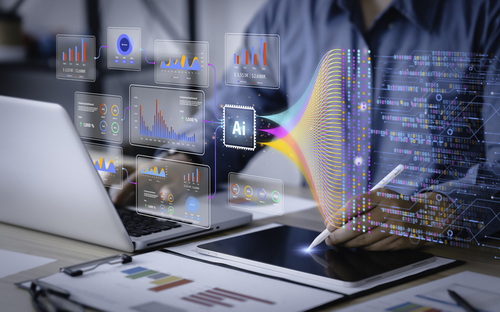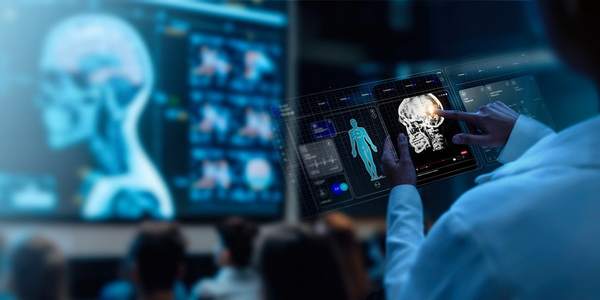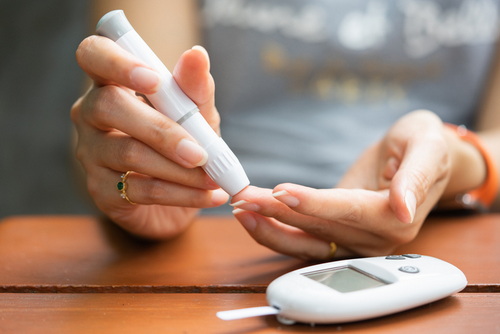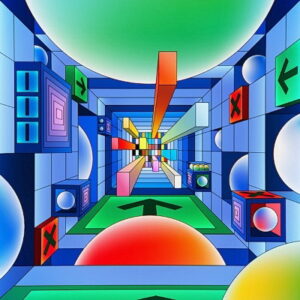
Overview
In our article How Technology is Helping the Medical Industry, we briefly brushed upon artificial intelligence. However, that was many years ago, and now, AI has become mainstream and is accomplishing tasks beyond anyone’s dreams.
Among the many areas of AI research and development, artificial intelligence for healthcare stands out as the most beneficial for the human race. Although medical AI is still in its early stages, advancements have already shown promise.
Below are just some of the accomplishments that AI has brought us.
-
- A 6-year-old boy was suffering from seizures, which was baffling doctors. With the help of an AI platform such as Face2Gene, which analyzes facial features, it was determined that the boy had a rare genetic condition called Angelman Syndrome. As a result, doctors were able to react quickly and provide the necessary treatment for this disorder.
-
- A 50-year-old woman went for a mammogram. The company that processed the mammogram used an AI system to diagnose the reading. The system was able to identify an early-stage tumor that the radiologist missed since it was incredibly tiny. This early detection allowed for minimally invasive surgery and significantly improved her prognosis.
-
- A woman was developing early signs of sepsis, which is a life-threatening condition where the body responds inaccurately to an infection. An AI tool noticed some subtle physiological changes in the woman before the symptoms became apparent to the doctors. Doctors were able to apply antibiotics, which prevented organ damage and saved her life.
Below are the areas where AI is already showing promise.
Diagnostics and Imaging

One area that is showing successful results is the potential for AI to eradicate diagnostic errors and ensure no diseases are missed. This is particularly true in diagnostic imaging. AI can already interpret scans from MRI, CAT, and X-rays more consistently than human radiologists can.
It can already identify specific abnormalities (e.g., lung nodules and breast lesions), but it still has issues diagnosing other abnormalities. As research continues, scientists are confident they will be able to conquer these issues and tackle complex medical challenges in the future.
AI-Enhanced Diabetes Management

Glucose monitoring (CGM) systems, when integrated with AI, help to improve patient outcomes by offering advanced data analytics and subsequently providing recommendations for the specific individuals from that data.
Dexcom, one of the more popular CGM systems, is revolutionizing diabetes control by providing real-time blood glucose level results.
Advancements in Cancer Care
You might have heard of IBM’s supercomputer Watson. Even before artificial intelligence, Watson proved that it could outthink humans. One example was when it was placed as a contestant on the Jeopardy game show and won! Now, IBM has integrated AI into Watson, which is called Watsonx.
Promise in oncology is proving significant. The computer is fed massive volumes of medical data, trial data, and patient records to suggest tailored treatment options for the specific individual, and it is continuously fed new data in order to keep up with current insights.
One example is in diagnosing breast cancer. Based on a patient’s specific type and stage of cancer, Watsonx can provide treatment options, complete with supporting evidence and potential outcomes.
Detecting Eye Diseases Using AI

Google’s DeepMind is at the forefront of advancing AI to the next level. It has developed exceptional performance in the field of ophthalmology. Its algorithm can detect over 50 eye diseases with a 94% accuracy rate.
Faster than any human can do, it can analyze OCT scans in less than 30 seconds and subsequently categorize the scans into four levels: urgent, semi-urgent, routine, and just to keep an eye on it (put intended :-). Additionally, DeepMind can predict certain eye illnesses much earlier than any human can. It’s an ophthalmologist’s dream!
The Path Forward
Artificial intelligence for all industries is here and advancing each day, but there is no other field more important than healthcare. We are already benefiting from this technology, and who knows, Dr. McCoy’s medical tricorder may be closer than you think!
